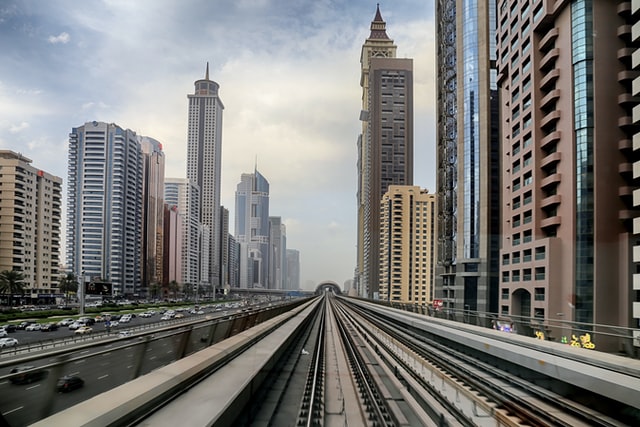Over nearly eight years – the driverless carriage had carried 1.03 billion passengers, Khaleej Times reports
UAE residents and tourists travel in the Dubai Metro almost every day since the Metro started its own journey in 2009, and it has been a historic one.
From the first day it was launched on September 9, 2009, until the end of August 2017 – nearly eight years – the driverless carriage had carried 1.03 billion passengers.
The journey begins
The plan for the Metro was set to motion on May 29, 2005, when the Dubai Municipality signed a Dh12.45billion contract with Dubai Rapid Link, which is a group of companies led by Mitsubishi Corporation of Japan.
The firm also won another contract, worth Dh1.88 billion to carry out maintenance of the project for 15 years, which means they are responsible for maintenance until May 29, 2020. By October 2005, the construction for the Metro commenced.
Surpassing goals
The plan in 2005 was to have a Red Line running from Rashidiya Station to Jebel Ali Station (now called UAE Exchange) and a Green Line running from the Dubai Airport Free Zone to Dubai Healthcare City. Obviously, Dubai surpassed its goals and the lines have expanded, specifically the Green Line. The Red Line is currently under expansion for the Route 2020 project.
By March 2007, it had been 19 months of ongoing construction and some 7,000 people were working on the project at different sites across Dubai.
The work was moving forward rapidly as the progress was becoming visible. By July 2007, a total of 700 piers (60 per cent out of total required for completion) for the Red Line had been constructed. The project was starting to move towards its final stages of construction.
In November 2007, His Highness Sheikh Mohammed bin Rashid Al Maktoum, Vice-President and Prime Minister of the UAE and Ruler of Dubai, carried out an in-person inspection of the project. He took a car through the metro tunnel linking Al Ittihad and Al Rigga stations. At the time, 16,000 employees were working on the project, including engineers, administrators and technicians.

Sale of station names
On March 31, 2008, it was announced by the Roads and Transports Authority (RTA) that companies can purchase naming rights on the Metro stations. Initially, names of 23 stations were available for sale and eight were named after RTA partners who had co-funded the construction of the stations. By September 2008, there were 24,000 engineers, technicians and workers involved in construction of the project, as well as 105 sub-contractors. Three months later, it was revealed that the RTA had raised Dh1.804 billion from the bidding of the first batch of the Metro stations naming rights.
Some of the companies that had purchased the naming rights (and some who still remain) were Majid Al Futtaim (the Mall of the Emirates Station and Deira City Centre Station), Emirates Telecommunication Corporation (Etisalat Station), Gulf General Investment Company (GGICO Station), Sharaf DG, First Gulf Bank, Nakheel (Nakheel Station, The Palm Deira Station and Nakheel Harbour & Tower Station) and Dubai Airport Free Zone.
On August 31, 2009, it was announced that Sheikh Mohammed will officially open the Dubai Metro on September 9.
The historic journey
When September 9 came, it was indeed a historic day. Sheikh Mohammed was the first to swipe the Metro’s first ticket at exactly 9.09pm.
The Metro’s first stop was the Dubai International Financial Centre Station. Sheikh Mohammed placed a golden commemorative coin at the station. He was briefed by Mattar Mohammed Al Tayer, Director-General and Chairman of the Board of Executive Directors of the RTA, on the making of the coin to mark the historic event.
Sheikh Mohammed and other dignitaries boarded the Metro again and stopped at the station of Khalid Ibn Al Waleed, the underwater Al Ittihad, Terminal 3 of Dubai Airport and Al Rashidiya. Since the Dubai Ruler’s first ride till today, the metro has expanded significantly.
By September 14, 2009, as many as 42,782 passengers were lifted across 10 stations on the Red Line, pushing up the total number of passengers served since the inauguration on September 9 to 279,782 passengers. By December 9, 2009, nearly six million had rode the metro. The initial days of the metro consisted of 47 stations, including nine underground stations.
Today, the Metro has 49 stations – 29 on the Red Line and 20 on the Green Line. Currently, there is ongoing construction for a major expansion. The Green Line will become 20.6km-long, starting from the existing Al Jaddaf station to Academic City.
The Route 2020 is underway and will see a 15km extension of the Red Line to the Expo 2020 site.

